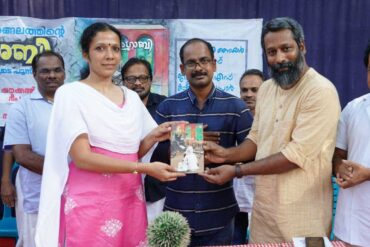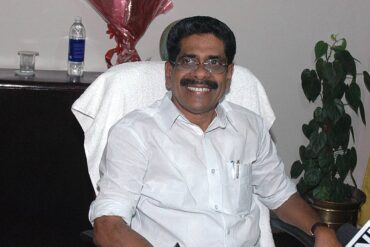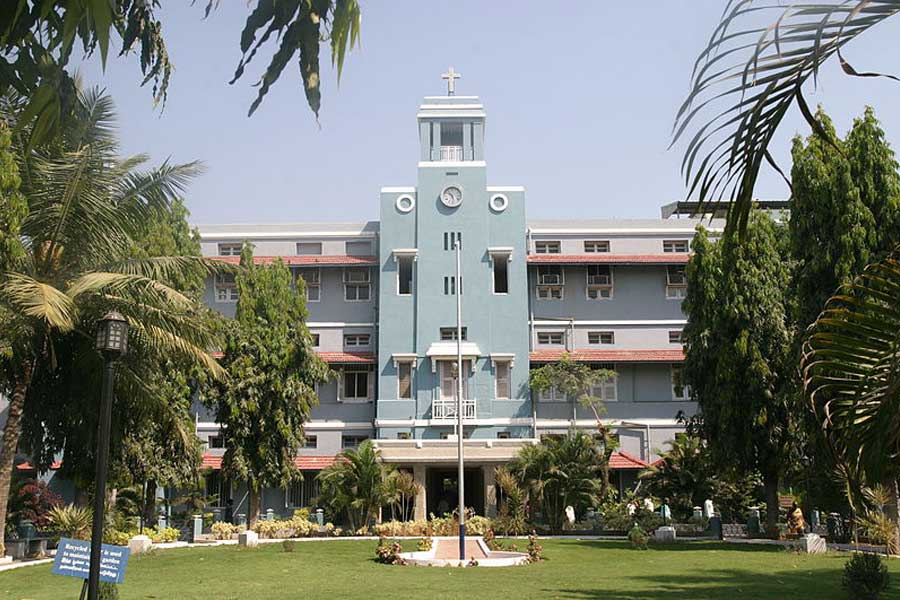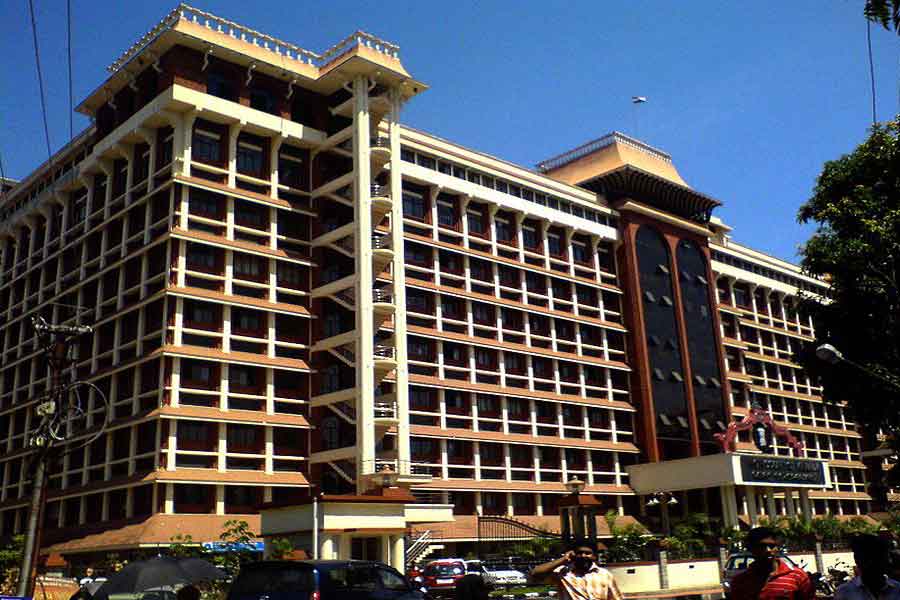How to get to a hospital? Not the info one usually finds in travel-guides or travel magazines. Yet, the most popular post by West Bengal-based travel writer Subhadip Mukherji on his website, indianvagabond.com, is a guide to a hospital—Christian Medical College (CMC), Vellore. The backstory is a commentary on the great mistrust in doctors and the state’s healthcare delivery services, even in the expensive private sector.
In 2015, Mukherji’s six-year-old daughter was admitted to a private nursing home with septic arthritis on her hip. Her condition did not improve even after months of treatment. The doctors then prescribed surgery. “The surgery would involve cutting off a part of her femur and reversing it before reinserting it,” said Mukherji.
It was going to be a major operation, requiring a lot of money. The traumatised father steeled himself and arranged for the Rs 3.5 lakh that the doctors had quoted. His sports-loving daughter was in extreme pain and unable to walk. “I would have done anything to make her walk again,” said he.
Then someone in his circle suggested, before she went for surgery, to take a second opinion, from a doctor outside the state. “I was stumped, but I took the suggestion and after considering a few options, chose Vellore,” he said.
He is glad he took the suggestion. At Vellore’s CMC, the doctors ruled out any kind of surgery and suggested home-based physiotherapy and check-ups every two-three months. “The team showed us—my wife and me—how to do the basic steps and we followed their instructions,” he said. After about two years, his daughter was back to her sporting-self again.
Mukherji believes that the negligence on the part of doctors contributed to his daughter’s condition, something he realised after conversations with doctors and experts in Vellore. The delay in providing correct treatment had resulted in a permanent damage to her thigh bone. Timely treatment is crucial in the case of septic arthritis. Delays can result in joint degeneration and permanent damage.
“They did not remove the infected fluid from the joint, which should have been done first,” said Mukherji. “Instead, they kept her in traction, in bed, for over two months. We got to know that her doctor was busy with some seminar in Mumbai and I wondered if he did not carry out any procedures at that time because of this. Anyway, the infection festered and subsequently it damaged the femur—while my daughter was under their inpatient care 24*7.”
It is not so much their incompetence, but their callousness in handling the case and alacrity to go for a major, totally avoidable, surgical intervention on a six-year-old that Mukherji found most astounding, and damaging.
Today, Mukherji stridently encourages others to go outside the state for any kind of treatment, offering them guidance from his experience—this is why he also wrote the Vellore travel guide. His message is clear: “Do not trust the doctors in Bengal.”
Going south
Mukherji is not alone. A large number of Bengalis travel to the southern cities—Chennai, Vellore, Hyderabad and Bangalore—for health issues. Anyone who can afford the basic private healthcare—sometimes even from the lower middle class who depend on state-run hospitals—prefers to travel several thousand kilometres down South for a treatment they find trustworthy rather than “being experimented upon by highly unreliable doctors”(said one of them) closer home.
It is not unusual for patients to travel long distances to seek specialised care for serious medical problems—to Mumbai’s Tata Memorial Centre for cancer treatment, for example. But Bengal’s case is rather unusual for people travel all the way to Chennai and Vellore even for simple ailments and routine health check-ups.
“The grievances that most people have against private health care in Bengal are in stark contrast to the trust they put in the top hospitals of south India in terms of quality, cost and care,” Sanjay Mandal wrote in The Telegraph, on January 20, 2018.
The phenomenon has even prompted a question on Quora: “Why do so many people from West Bengal come to Apollo Hospital in Chennai?” In response, someone identified as Ashish wrote: “We get best and correct treatment in Chennai/Bangalore as compared to West Bengal. Let me tell you how. Medical system in West Bengal is too poor. Majority of Doctors are running business instead of providing proper medical guidance. The doctors refer the patients to other doctors and get commission. The doctors prescribe the medicines for which they get commission. The doctors tell us to do medical tests which are not required at all.”
Ashish’s views are widely shared by Bengalis. It is true that there was a massive outpouring of public support to the agitation of doctors in the state earlier this month—the medicos were protesting after a junior doctor was assaulted allegedly by kin of a dead patient—the fact also remains that doctors enjoy very little trust among the masses.
Doctors and medical professionals in the South score over the Bengal counterparts with their openness, apart from their expertise and advance technologies. “Over the years, we have been able to gain the trust of our patients through transparency and comunication. Even if there is an unforeseen tragedy, the relatives understand that the hospital tried its best,”a CMC official was quoted in The Telegraph report.
Also, private healthcare in Bengal is not cheap either. For anyone who is putting all resources together to be able to afford private treatment in Bengal, making a choice depends on only one factor—distance. With direct trains and flights, this is not an insurmountable problem.
Status symbol?
Dr Pijush Kanti Roy, the Bengal-based all-India joint secretary of Indian Medical Association said this phenomenon was part habit, and mostly a status symbol. “When Apollo Hospitals came up in Chennai (in 1983), Bengal did not have similar kind of healthcare facilities, so people started flocking there,” Dr. Roy told The Kochi Post. “But now Bengal has made great progress in healthcare and is capable to deal with any kind of medical problem with state-of-the-art facilities in cities like Kolkata and Siliguri. Even the government sector is well-equipped. There is no need for anyone to go anywhere else. But some people still go habitually, and there are many others for whom it’s fashionable to do so; it’s like a status symbol.”
Brushing aside allegations of medical negligence he said: “Doctors are not Gods, and medical science is not pure science where you can make exact calculations. It is not humanely possible for doctors to save 100 per cent patients.”
Machh-bhaat in Madras
In the absence of the exact number of patients flocking to the Southern States for treatment every year, one can surmise by the flourishing mini-Bengals that have emerged in the southern cities.
The Mackay’s Garden area, close to Apollo Hospitals, Greams Gate, not only has shop and hotel signboards in Bengali, even the shopkeepers can communicate in Bengali. Many have Bengali-speaking employees. The neighbourhood comprises temporary residents, all Bengalis from West Bengal and neighbouring Assam and Tripura.
“Vellore is a mini Bengal and numerous Bengali restaurants are available selling staple food like rice, roti, chapatti, daal, potato fry, mixed vegetables, fish curry, chicken curry, meat curry etc,” Mukherji wrote in his blog entry, which is perhaps the only such comprehensive guide to CMC, with details from availability of wheelchairs at Katpadi station to booking appointments and the various meal options.“I keep getting call from strangers every now and then. Some want to know more, but most of them just want to thank me for writing the post.”
Cover Image: Christian Medical College, Vellore







